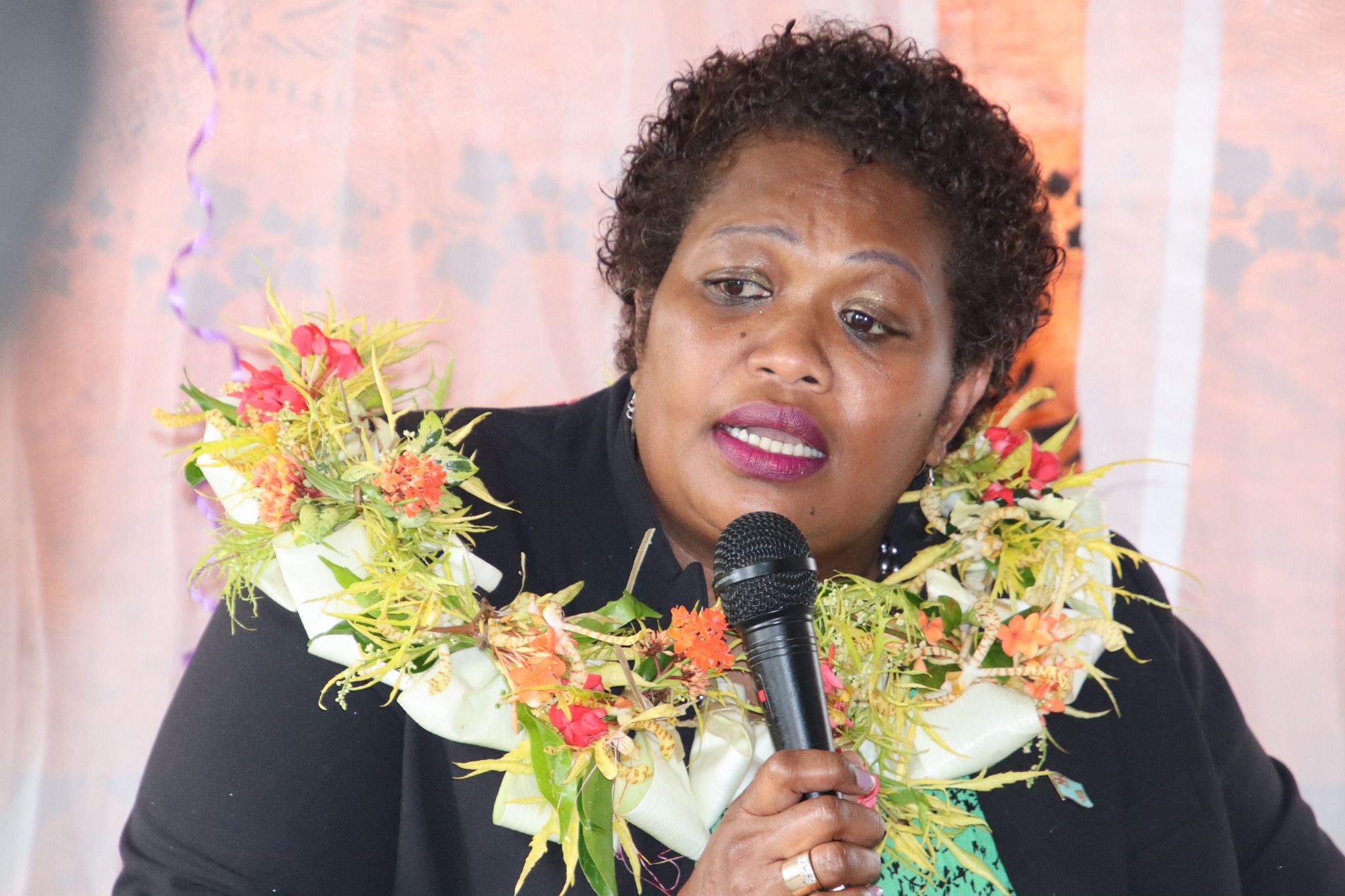NALIDI YOUTH FARMERS RECEIVE BOOST FOR KAVA PRODUCTION
July 31, 2025

Youth farmers in Nalidi Village, Nakorotubu, Ra, have expressed their heartfelt appreciation to the Ministry of Agriculture and Waterways following the presentation of farming inputs valued at $33,326.00 under the Commercial Agriculture Development Program.
The support was officially handed over yesterday by the Minister for Fisheries and Forests and Acting Minister for Agriculture and Waterways, Honourable Alitia Bainivalu, who reaffirmed the government’s commitment to strengthening the kava industry and expanding its export potential.
“We are here to celebrate your achievements and acknowledge your continued dedication to the kava sector,” said Hon. Bainivalu.
“One of our key priorities is to significantly boost—if not double—national kava production as we aim to elevate our export volumes to new heights.”
Hon. Bainivalu shared that, as reported in Parliament three weeks ago, Fiji exported 730 metric tonnes of kava in 2024, generating $53.51 million in export earnings. Of this total, 349 metric tonnes—valued at $30 million—were exported to the United States.
“This achievement marks the highest kava export value recorded in the last 12 years, surpassing the $50 million mark for the first time,” she added.
In addressing rural development and youth migration, Hon. Bainivalu underscored the importance of the Youth in Agriculture Programme, which engages young people in agriculture while supporting the national export agenda and encouraging urban-to-rural migration.
“A total of $281,000 has been allocated this year to support youth farmers supplying to major exporters such Lami Kava, Fiji Kava, Kava Korp and other exporters exporting to the US markets. Now, it is up to you—as youth farmers—to grow this market and maintain consistent supply to these exporters,” she said.
The United States remains Fiji’s largest kava export market, accounting for approximately 80% of total kava exports, with the remainder distributed via online platforms and local markets. The U.S. kava market is valued at over USD $1 billion, representing a major opportunity for Fijian farmers and exporters.
In February 2025, a Ministry-led delegation headed by Assistant Minister for Agriculture and Waterways, Hon. Tomasi Tunabuna, conducted a kava mission to the United States and during their consultations, 99% of U.S. importers emphasized the need for consistent quality.
"US importers also stressed the importance of quality control and the need for food-safe kava. The U.S. Food and Drug Administration (FDA) has strict standards, and meeting those standards is crucial for market growth,” said Hon. Bainivalu.
Speaking on behalf of the youth, Youth Coordinator Osea Vucenavatu expressed deep gratitude for the support, emphasizing how the assistance will inspire greater dedication and productivity.
“We travel to the farm every
week and camp there, only returning home on Saturdays for the weekend.
It has been a real journey for the youths in our village, and receiving this assistance today means so much to us,” said Mr. Vucenavatu.
He added that the group has committed themselves wholeheartedly to the next three years, with plans to plant more than 150,000 yaqona plants as part of their long-term vision for sustainable kava farming.
“We have been consistently supplying to Lami Kava, and during peak periods, we deliver over three tonnes of kava per week to the exporter. This remarkable achievement wouldn’t have been possible without the unwavering commitment and teamwork of every member of our group. They have truly proven themselves over the years.”
Lami Kava representative, Mr. Waisale Kurunisaravi, commended the Nalidi Youth Farmers as one of the company’s most reliable and consistent suppliers.
“Their dedication to meeting supply demands, especially during peak export periods, has been impressive. We are proud to partner with them and look forward to continued collaboration as they expand their kava production,” he said.
Established in 1982, Lami Kava has earned a reputation for producing premium-quality kava and continues to play a vital role in promoting Fijian kava on the international stage.
Minister Bainivalu also noted that the Kava Farming Programme, administered by the Ministry’s Extension Division, has received a major funding increase from $500,000 in the current financial year to $1.9 million in the new budget cycle.
“This reflects the Ministry’s strong commitment to expanding kava production and supporting the industry's growth,” she explained.
As part of this initiative, the Ministry will revive, strengthen, and improve the resilience of yaqona by establishing 13 noble yaqona varieties across various agro-ecological zones in Fiji.
The programme will include varietal performance assessments, clean planting material multiplication, and development of post-harvest handling techniques to unlock new market opportunities.
A dedicated budget of $782,600 will support research and development through the establishment of nurseries at Naduruloulou, Bua, and Wainigata Research Stations, along with germplasm collections at Taveuni Mua, Wainigata, Dobuilevu, and Naduruloulou Research Stations.
The Ministry remains committed to increasing kava exports from $53 million in 2024 to an ambitious target of $250 million by early 2028—a bold move that underscores the government’s resolve to position Fiji as a global leader in the kava industry.
ENDS
